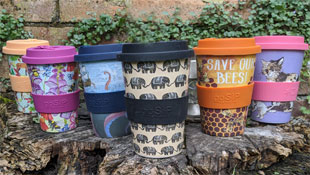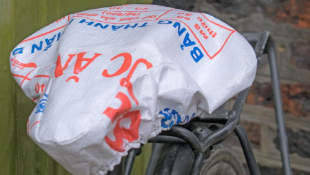COMPANY AIMS
Shared Earth sells Fair Trade, eco-friendly and ethical products. Our aim is to tackle the climate crisis and create a fairer, more sustainable world.
History
Shared Earth was started by Jeremy Piercy as a small shop in York in 1986 and became a limited company in 1991. In 1992 it started wholesaling. Today it consists of 3 businesses: Shared Earth York Ltd (York shop), Shared Earth Liverpool Ltd (Liverpool shop) and Shared Earth UK Ltd (wholesale). As at 2022, roughly 76% of sales are wholesale, 12% our York shop and 12% our Liverpool shop.
Fair Trade and the Environment
Fair Trade is a chain involving a variety of stakeholders from the original producer right through to the final consumer; and the whole chain affects the well-being or otherwise of our planet. Fair Trade is about reducing poverty. However, in the long term all efforts we make to pay fair wages and provide decent working conditions could be negated if the climate crisis is not tackled. Floods, droughts and deforestation impact the South, where agriculture is often key to people's livelihoods, far more than they do the North. Increasing sustainability and minimising global warming are therefore key priorities for Shared Earth, as important as fair payment, good working conditions etc.
- The Environment - Shared Earth has a detailed Environmental Policy. Key points include:
- Assessing 'key impacts' to see how best we can help to reduce global warming.
- Prioritising the use of recycled or upcycled raw materials.
- Using sustainable materials such as jute, bamboo, wool and softwoods.
- Ensuring that our overseas partners use materials, equipment and production methods which are appropriate to the ecology of the country concerned, with energy usage as low as possible.
- Using biofuels to neutralise the carbon emissions of our shipping (sea, air and land).
- Using public transport, importing by sea instead of air, reducing energy consumption.
- Minimizing the amount we send to landfill.
- Using recycled materials in packaging, and if this is not possible, using the best eco alternatives.
- Minimising the use of non-compostable plastic in packaging.
- Buying wood only from sustainable plantations, recycled, reclaimed or fallen trees.
- Ensuring that our suppliers avoid contaminating soil or water, avoid chemicals, and dispose of waste responsibly.
- Avoiding any product or raw material which has been tested on animals.
- Raising awareness about the importance of environmental issues, including biodiversity, and especially the impact on world poverty of the climate crisis.
- Suppliers - The world trading system benefits the rich at the expense of the poor. To improve the livelihood of disadvantaged people in developing countries, Fair Trade principles are at the heart of our buying policy.
- We aim to:
- Pay overseas partners realistic prices, rather than the minimum amount possible.
- Give advice on design, fashion trends, marketing methods etc.
- Encourage and assist them to adapt to changing customer needs, so that long term trading relationships are possible.
- Make payments in advance when requested.
Pay all suppliers (in all countries including the UK) on time.
- We try to work with suppliers who fulfill as many as possible of the following criteria:
- Fair wages relative to local expectation.
- A commitment to positive environmental practices such as recycling, using sustainable raw materials and avoiding plastic.
- Safe working conditions and a pleasant work environment.
- Equal opportunities and pay regardless of sex, race, religion or age.
- No underage workers as per ILO standards; participation of children to develop trade skills only if it does not affect their health, security and educational requirements; mechanisms (appropriate to FTO's resources) to monitor the health, safety, welfare, education and right to play of working children according to the relevant UN Convention on the Rights of the Child.
- No slave or forced labour as required by the Modern Slavery Act 2015.
- Training and development of the workforce.
- Involvement of all levels of the workforce in decision-making and/or ownership.
- A concern for the local community and not just the individual.
- Commitment to product quality.
- Adherence to agreed delivery times.
We buy directly with overseas producers or their agents where possible, and if buying through UK distributors, try to ensure that as many as possible of the above conditions as possible are being met.
It is not always possible to source products which combine both Fair Trade and eco-friendly benefits. In our catalogues, product labels etc we will however try to clarify whether products are Fair Trade, ethical, eco-friendly or recycled.
It is our belief that the effects of not combating the climate crisis will be so detrimental to people in the long term that the environmental aspects of our purchasing should be given top priority when we make decisions.
We aim to buy from WFTO members whenever possible.
- Staff
- To act as a caring and responsible employer, encouraging staff to develop their talents and contribute towards the success of the business.
- To train all staff in every aspect of their work.
- To practise good communication throughout the company.
- To enable participation in decision-making to take place through meetings, newsletters, surveys etc.
- To pay fair wages.
- To provide decent conditions in the workplace.
- To provide equal opportunities to all.
To enable all staff to feel valued, respected, and part of a supportive team.
- Customers
- To treat customers with courtesy and respect, and to provide excellent service in all areas of our business.
- To be professional in our presentation and service.
- To sell high quality goods at reasonable prices.
- To develop innovative and exciting own brand products.
- To create a pleasant and attractive environment at all of our locations.
- To deliver goods on time, to minimise mistakes and damages and to deal with complaints efficiently.
- To seek the views of our customers and to take these into account.
- Transparency and Accountability
- To provide customers and other stakeholders with information on our products, policies and trading practices, thus helping to make Fair Trade and concern for the environment, and ethical trade in general, the preferred options for businesses and consumers alike.
- To involve employees in our decision making process.
- To provide details about our suppliers whenever asked.
- Finance
- To generate sufficient profit to finance the growth of Shared Earth and the fulfillment of our objectives.
|





















